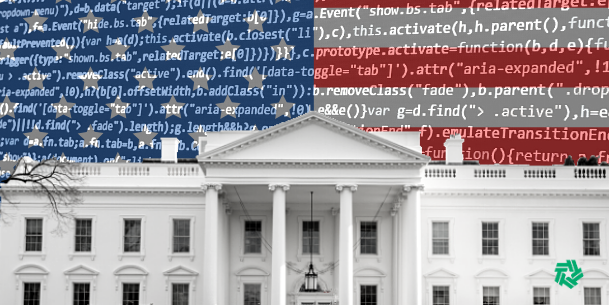This pending agency modernizing legislation is a lot less than it seems
A bill in the Senate would, with bipartisan backing, order agencies to modernize their information technology. But it wouldn't come with any funds dedicated to...
Best listening experience is on Chrome, Firefox or Safari. Subscribe to Federal Drive’s daily audio interviews on Apple Podcasts or PodcastOne.
A bill in the Senate would, with bipartisan backing, order agencies to modernize their information technology. But it wouldn’t come with any funds dedicated to doing so. So would it amount to anything? The Federal Drive with Tom Temin got some insight from federal sales and marketing consultant Larry Allen.
Interview transcript:
Tom Temin: This bill, I don’t know that there is a technology modernization fund with a lot of money leftover in it. And you could say, Larry, that every time an agency spends anything on IT, in effect, they’re modernizing something. Tell us more about your take on this bill.
Larry Allen: Tom, we’re talking here today about a Legacy IT Reduction Act of 2022. It’s a bipartisan piece of legislation introduced by Sen. Hassan (D-N.H.) and one of her Republican colleagues in the Senate, and the idea behind it is good. But as you pointed out, Tom, the concept of IT modernization is always something that everyone can get behind. With the rare exception of the IT Modernization Fund, actually putting money into specially dedicated modernization of federal IT systems is something that’s a really hit or miss proposition. While people do have money to spend on IT still, the great majority of funds in that sector go towards updating and maintaining legacy systems. We hear a lot of talk about ripping out old, non-functioning systems, but it really takes government agencies a really long time to get around to it, Tom. And I think that’s one of the reasons why the senator introduced this legislation. I think it’s really well intended, because it would mandate that agencies actually develop a list in concert with OMB (Office of Management and Budget), of the systems that they would rip out and require them to rip them out. However, there’s a key piece missing. And that’s the ability to pay for all of that.
Tom Temin: Well, the other piece that’s missing is what would they have in alternative to what they rip out? It’s not something you can replace a legacy system overnight. And in fact, haven’t a lot of agencies been working in the DevOps kind of way to replace functionality bit by bit already?
Larry Allen: That’s very true. If you look across the board, cabinet level agencies, Tom, sub-cabinet level agencies, many of them are making critical incremental progress in replacing legacy systems that may not be moving as fast as anyone would like. But many agencies are in fact trying to update things. The idea that new systems actually need to have security baked into it is one that is widely accepted right now, you kind of mentioned that with the DevSecOps activities that are going on throughout the community. I think what this legislation is is a message saying it’s not happening fast enough. It’s not happening on a broad enough scale. We’d really like agencies to put this up as a higher priority, which would be great. Tom, I’d like to have Congress put the funding up for it as a higher priority, too.
Tom Temin: And the status of this bill right now, though, is there anything that you know of the counterpart in the House?
Larry Allen: I don’t know that there’s any House counterpart legislation. But if you look at things like this, again, this is the Legacy IT Reduction Act, bipartisan support in the in the Senate, conceptually, we know that there will be people in the house that support this type of thing, Congressman Connolly from Northern Virginia, for one, others in the house that traditionally support the IT Modernization Fund, it’s a question of timing. Who knows if it will happen this year, or if it was be something that we get attached to a larger piece of legislation for next year? It’s a great idea, I think, to do it, but it only really works if you provide money behind it. You don’t want to create another unfunded mandate for federal agencies, for IT modernization or any other part of their mission.
Tom Temin: We’re speaking with Larry Allen, president of Allen Federal Business Partners. And you’re also writing this week about the number of rules coming as a result of presidential orders from the General Services Administration, that would seem to complicate acquisition, where as the agency’s stated goal is to simplify acquisition.
Larry Allen: Right. And I want to say at the outset, I’m not cracking on my friends at GSA. They’re just one part of the FAR (Federal Aquisition Regulatory) Council. And the FAR Council here is really reacting to a series of presidential executive orders. The FAR Council didn’t issue these executive orders, but they are responsible for putting in place the regulations that govern and implement these executive orders. So even as GSA says, we really want to simplify acquisition and you have to take them at their word for that, it’s really difficult to juxtapose that against the 18 either pending or coming soon, FAR cases in just three areas, Tom, those areas are environmental regulations, labor regulations and cyber related regulations. All of these have their constituencies, and I think of all of them, probably cyber is the most important one, we want to make sure that our system stays secure. But it’s difficult to say that you’re simplifying acquisition when you’re in the process of having a really robust year for new rules.
Tom Temin: Right. And we just had a new rule that was finalized earlier this month, and that is the new deeper Buy American requirements. And even those have a backdoor in them because they’re not fulfillable in many circumstances.
Larry Allen: Well, that’s exactly right. And that’s one that’s really catching our a lot of people by surprise. It shouldn’t, because that was one of the very first things this administration said they were going to do when they came into office. But now that we actually have the regulations out, it’s real for people. And there’s a lot of discussion about how realistic it is to implement those new Buy American Act requirements, given global supply chains, given some of our current supply shortages, and given the domestic production capability that we have today. So that’s just one example of something that’s going to take a time to work out.
And the larger point here, Tom, is, we as the government tried to do a lot of things through our acquisition system, not just to acquire goods and services, to meet agency missions, which is really the core goal. We’ve decided over the course of several decades that we need to have the acquisition system meet socioeconomic goals, increasingly environmental goals, fair labor goals, none of which are necessarily bad things in and of themselves. But like anything else, Tom, it kind of reminds me of the bicyclist you see riding down the road, who’s got panniers on both sides, a backpack slung over his back, panniers on the front, that bike is still trying to move forward. But the person’s not making a lot of progress, because it’s got a lot of excess baggage all around it.
Tom Temin: Yes, I was gonna say it’s more like overloading your mules, it’s then trying to make it walk uphill. But you know, maybe bicycles are better, that’s a greener type of thing. All right. But these rules are coming because they’re ordered by the administration. So what can contractors reasonably do except watch them, read them and be prepared to meet them?
Larry Allen: Well, that’s really what contractors can do, Tom, you have to be prepared, you have to know that the market in which you’re doing business today is about to change. And in some ways, it’s going to change to add increased burdens to you. It’s really a market that again, despite the rhetoric, favors incumbents, entrenched government contractors, no government contractor likes new rules and regulations, Tom, but for established companies, these are more incremental changes than things that are really going to substantially alter how they do business. That’s particularly true if the federal government is already your primary customer. If you’re a newer market entry or a small business, you’re going to have to take a good hard look at these rules and decide if being a federal contractor still makes sense for you. It’s going to be a lot of overhead that you’re going to have to implement. And as we talked about with the inflation rule a couple of weeks ago, it may be difficult for the government to give you extra money for your compliance with the new regulations. So I can see that a lot of companies are going to have to do their homework. They’re gonna have to do the math and make business decisions about whether or not this market still a good bet for them.
Tom Temin: Oh, come on in the water is great.
Larry Allen is president of Allen Federal Business Partners. Thanks so much.
Larry Allen: Tom, thank you and I wish your listeners happy selling.
Copyright © 2025 Federal News Network. All rights reserved. This website is not intended for users located within the European Economic Area.
Tom Temin is host of the Federal Drive and has been providing insight on federal technology and management issues for more than 30 years.
Follow @tteminWFED






